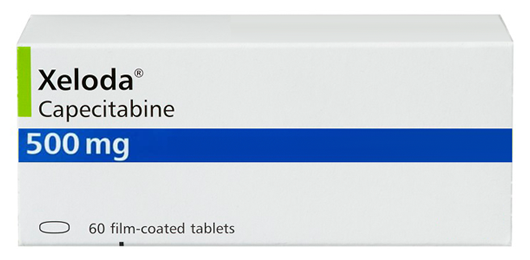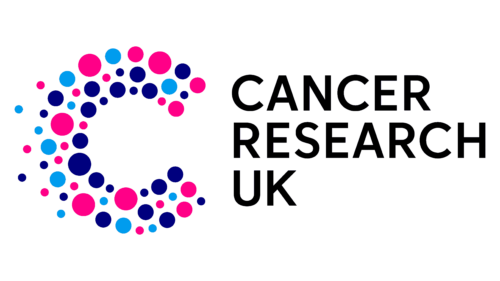
| Product Name: | Xeloda (Capecitabine) |
|---|---|
| Dosage: | 500 mg |
| Prices: | £ 11.65 – Per Pill |
| Where To Buy Online | OnlinePharmacy |
|
Xeloda, with its generic name capecitabine, is a chemotherapy drug used in the treatment of cancer. It falls under a class of medications known as antineoplastic agents, specifically fluoropyrimidines. Xeloda is an orally administered systemic prodrug, which means it is transformed into its active form through metabolic processes in the body. It's primarily used to treat certain types of breast, colorectal, and gastric cancers, particularly in advanced stages or when cancer has metastasized (spread to other parts of the body). Xeloda is taken orally in pill form and is often preferred for its convenience compared to traditional intravenous chemotherapy. The drug is converted into its active form in the body's tissues, where the cancer cells are present, helping to target the treatment directly to the affected areas. What diseases does Xeloda treat? Xeloda, or capecitabine, is primarily used in the treatment of several types of cancer. Its main applications are in:
Capecitabine may be used off-label for other types of cancer, depending on the specific clinical scenario and in accordance with a healthcare provider's judgment. The effectiveness of Xeloda is contingent on several factors, including the type and stage of cancer, the patient's overall health, and response to previous cancer treatments. In what forms Xeloda is available? Xeloda (capecitabine) is available in the form of oral tablets. These tablets come in different strengths to allow for dosing flexibility based on the patient's needs and treatment regimen. The common strengths of Xeloda tablets are:
The oral tablet form of Xeloda allows for convenient administration at home, which can be an advantage for patients compared to intravenous chemotherapy treatments that require clinic visits. The specific dose and schedule of Xeloda are determined by the treating physician based on various factors, including the type and stage of cancer, the patient's body surface area, general health, and response to treatment. How to take Xeloda? Xeloda (capecitabine) should be taken exactly as prescribed by your healthcare provider. The general guidelines for taking Xeloda are as follows:
How long does Xeloda take to work The time it takes for Xeloda (capecitabine) to start working can vary depending on several factors, including:
Generally, some patients may see a response within a few weeks, but for others, it might take longer. Xeloda's effectiveness is often evaluated through:
It's important to have regular follow-ups with your healthcare provider to monitor the effectiveness of Xeloda and make any necessary adjustments to the treatment plan. Patience and adherence to the prescribed regimen are crucial, as the response to chemotherapy can be gradual. Duration of Xeloda's Effects The duration of Xeloda's (capecitabine's) effects in the body depends on several factors:
It's important to note that while the drug itself is eliminated from the body relatively quickly, the effects of the medication, particularly on cancer cells, can be longer-lasting. The goal of Xeloda treatment is to cause sustained damage to cancer cells, slowing down or stopping their growth and spread. However, the duration of clinical benefits, such as tumor shrinkage or symptom relief, will vary significantly among individuals and depends on the type and stage of cancer being treated, as well as how the cancer responds to the drug. Regular monitoring and follow-up appointments are essential to assess the ongoing effectiveness of the treatment and make any necessary adjustments. Is generic Xeloda available? Generic versions of Xeloda, containing the active ingredient capecitabine, are indeed available. After the patent for the brand-name drug Xeloda expired, various manufacturers were allowed to produce and sell generic capecitabine. These generic drugs are equivalent to Xeloda in terms of dosage, safety, strength, quality, route of administration, and therapeutic use.
Overall, the availability of generic capecitabine provides a valuable and more cost-effective option for patients requiring treatment with this chemotherapy agent. Xeloda possible side effects Xeloda, known generically as capecitabine, is a chemotherapy medication used in the treatment of certain types of cancer. Like all chemotherapy drugs, it can cause a range of side effects. Some common and serious side effects of Xeloda include: Common Side Effects:
Serious Side Effects:
It's important for patients to report any side effects to their healthcare provider, as management and intervention can be critical. Not all patients will experience all side effects, and some may experience none. The severity can also vary from person to person. Where to buy Xeloda and how much does it cost? Acquiring Xeloda (capecitabine) and information regarding its cost involves several factors: Where to Buy:
Cost of Xeloda:
For the most accurate and up-to-date information on where to buy Xeloda and its cost, consult with a healthcare provider or a pharmacist. They can provide guidance tailored to your specific situation, including insurance coverage and any available discounts or assistance programs. Improvement of Quality of Life with Xeloda Xeloda, or capecitabine, can contribute to the improvement of quality of life for patients with certain types of cancer in several ways: Effectiveness in Cancer Treatment:
Convenience and Comfort:
Psychological Benefits:
Side Effects Management:
The improvement in quality of life can vary depending on the individual, the type and stage of cancer, and how the body responds to the treatment. What other essential points are there to know about Xeloda? The U.S. Food and Drug Administration (FDA) recently updated the decades-old approval of the chemotherapy drug capecitabine under a new initiative. This update is expected to lead to broader changes in cancer treatment. The move signifies the continuing relevance and evolution of capecitabine in oncology The FDA has also approved new and revised indications for Xeloda. This includes its use as an adjuvant treatment for patients with Stage III colon cancer, either as a single agent or as part of a combination therapy. This expanded indication enhances the utility of Xeloda in treating various stages and types of cancer, offering new therapeutic options for patients with Stage III colon cancer. Research has indicated that taking a low dose of Xeloda for one year after surgery to remove early-stage triple-negative breast cancer (TNBC) can reduce the risk of cancer recurrence. This finding is particularly significant because it suggests that less toxic treatment regimens, which do not include more aggressive platinum-based chemotherapy, can be effective in preventing the recurrence of this aggressive form of breast cancer. Xeloda (capecitabine) Patient Experiences and Reviews Excerpts from personal accounts, testimonials, and feedback from individuals who have used this medication, offering valuable perspectives on its effects, side effects, and overall impact on their health and well-being. Such information can be particularly useful for others who are considering or currently undergoing treatment with Xeloda. One patient described Xeloda as a "wonder drug" for breast cancer metastasis to bones. They took it for 16 months and experienced stability in their condition without any significant side effects, including the common hand/foot syndrome or fatigue. They noted feeling almost normal, able to travel and work while on the medication. Another patient, who switched from Taxol to Xeloda, appreciated the convenience of Xeloda's pill form and its slow but steady improvement in blood work results. However, they experienced pain and stiffness in the fingers, affecting their ability to type and perform daily activities, leading to a break from the medication. A patient who had used Xeloda for over a year for stage 4 breast cancer found it easier on the body compared to IV treatments and saw good results in blood tests. They mentioned financial assistance from the drug company initially, but also expressed concerns about the financial burden after the assistance ended. While on Xeloda, they experienced more back pain and aches but were able to continue most desired activities with rest. These personal accounts highlight the varied responses individuals can have to Xeloda, ranging from highly positive and symptom-free experiences to challenges with side effects and concerns about long-term usage and costs. |
